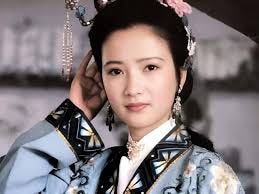The Qin Keqing Affair
Warning - today’s post will contain spoilers.
Apologies for having to spoil things like this. There’s not much else I can do to discuss Jiao Da’s drunken rant without referring to some important plot points that are going to happen within a few chapters.
Jiao Da shouted out two phrases that shocked everybody listening:
爬灰的爬灰,養小叔子的養小叔子
Those who crawl in the ashes crawl in the ashes, and those who take care of their brothers-in-law take care of their brothers-in-law.
The phrase 養小叔子 has an obvious sexual innuendo that any reader at the time would understand. 養 means to raise a child or to nourish or take care of somebody, but it also has a sexual meaning that is something like to please or entertain.
爬灰, however, is a little bit less obvious.
It seems that it’s related to 扒灰 (both words share the same pronunication of pá huī), which comes from The Plum in the Golden Vase (金瓶梅):
那旁多口的,認的他有名叫做陶扒灰,一連娶三個媳婦,都吃他扒了。
Among the bystanders were a few gossipers who knew him. He was known among them as Tu the Ash Scraper because he had married three sons off, only to scrape their ashes.
It seems that the “scratching” and “scraping” translations that we see in David Hawkes and in the Yangs comes originally from the verb 扒 (to scrape, to scratch) and not 爬 (to crawl).
I believe the term 扒灰 originated with the notoriously vulgar and frank The Plum in the Golden Vase, though I could be wrong. At any rate, a well read, literate reader in the 18th century would have understood the reference right away, and the 養小叔子 afterwards makes it clear that this is a sexual reference.
But the connection between this phrase and what is rumored to be going on in Dream of the Red Chamber is a lot more fascinating.




